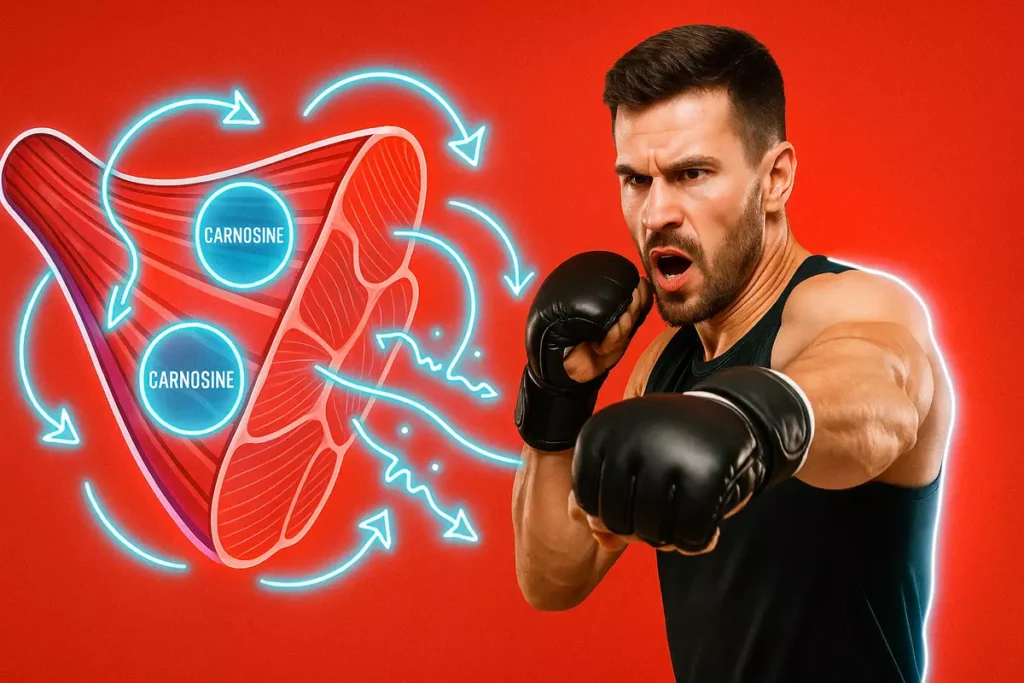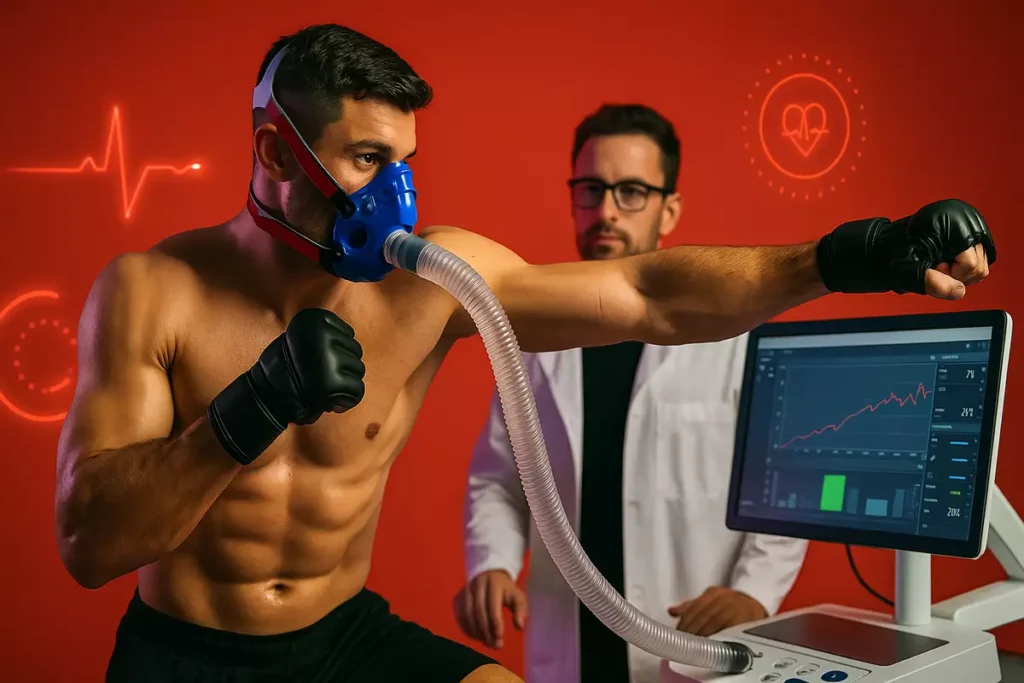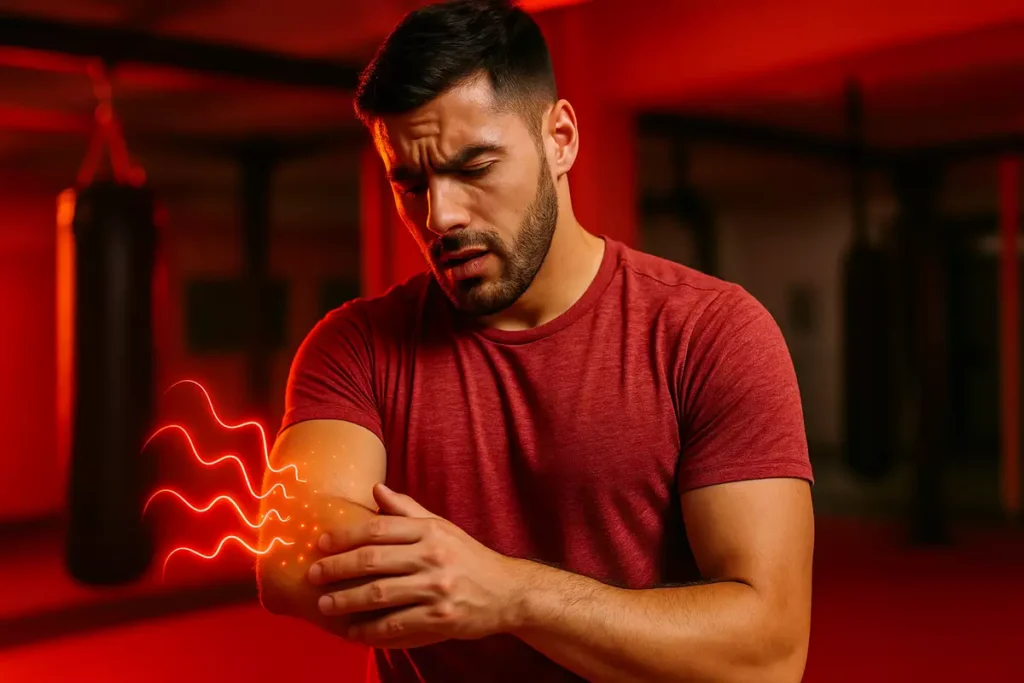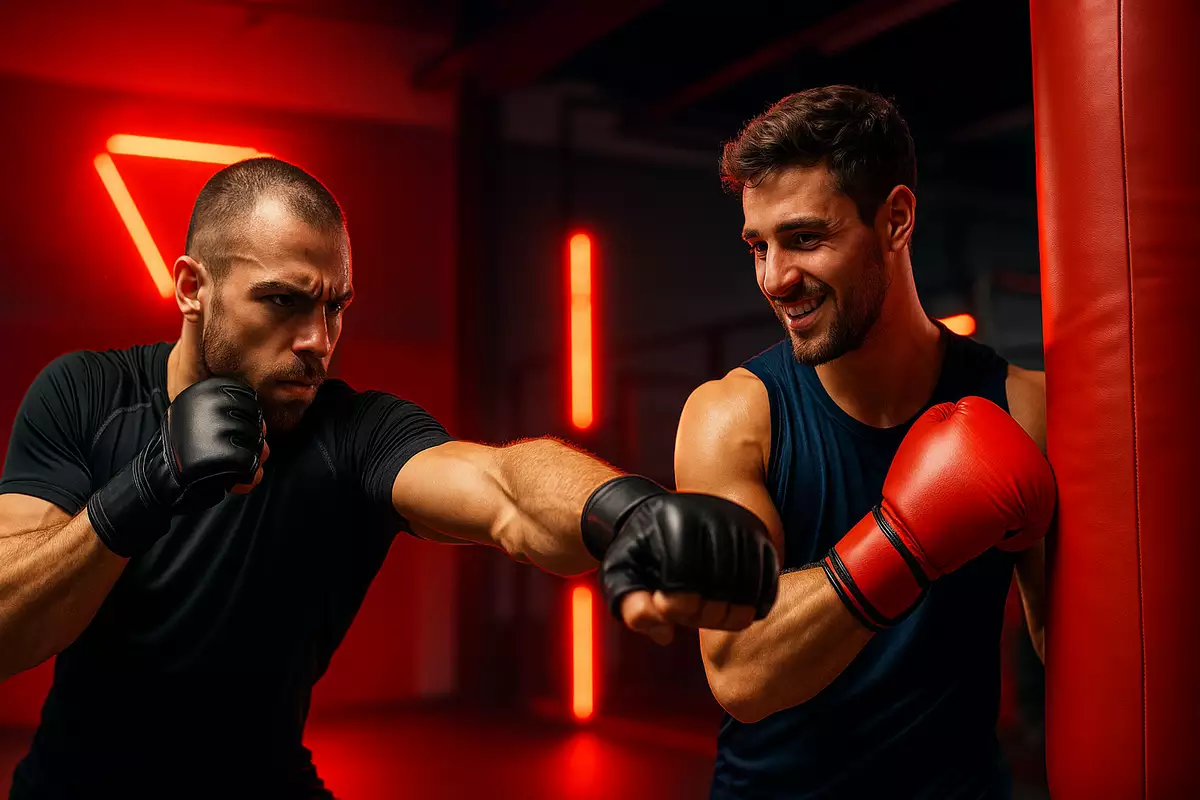Tired of gassing out in the final rounds of MMA or boxing?
Beta-alanine could be the secret weapon you need.
This powerful supplement boosts endurance, delays fatigue, and keeps your punches and grappling strong when it matters most.
Backed by science and proven in real training, beta-alanine helps fighters push harder, recover faster, and perform at their peak.
Table of contents
Quick Answer
If you’re a combat athlete in MMA or boxing, beta-alanine can be a real game-changer.
It helps delay fatigue, improves endurance, and keeps your punches and grappling sharper in the later rounds.
In short: yes, beta-alanine works—and it can give you that extra edge when the fight goes deep.
How Beta-Alanine Works in the Body

Beta-alanine is an amino acid that increases carnosine levels in your muscles.
Carnosine acts like a buffer, fighting off the acid buildup that causes that burning feeling in your arms and legs.
For combat athletes, this means you can maintain power and speed for longer without breaking down in form.
You can read more about how this works in other sports like weightlifting and cycling.
Key Benefits for MMA and Boxing
- Increased muscular endurance – Lets you throw punches and kicks with more consistency across rounds.
- Improved explosive power – Keeps your fast-twitch muscles firing even under fatigue.
- Reduced late-round fatigue – Helps you hold technique when your opponent is slowing down.
In my own training, I’ve noticed that during 5-minute pad work rounds, I can keep my combinations crisp even in the final minute.
Without beta-alanine, that same round would leave my arms feeling like lead.
For more on this, check my guide on beta-alanine benefits for muscle endurance.
Scientific Evidence in Combat Sports

Research shows beta-alanine extends time to exhaustion in high-intensity efforts.
This translates directly to sports like boxing and MMA, where short bursts of power repeat over and over.
The science lines up perfectly with what I’ve seen in practice—fighters are able to sustain explosive efforts longer and recover faster between exchanges.
Similar improvements have also been documented in sprinting and swimming performance.
Dosage and Timing Guidelines
From both personal use and coaching experience, the sweet spot is 3–4 grams daily, split into smaller servings.
Timing isn’t critical—what matters is consistency.
After about 3–4 weeks of steady use, you’ll start noticing the difference in training and sparring.
Possible Side Effects and Safety

The main side effect is a tingling feeling called paresthesia.
I felt it strongly in my face and arms when I first started.
One of my boxing clients, David from the UK, described it as “ants crawling on the skin.”
The good news is it’s harmless and manageable—splitting the dose across the day makes it barely noticeable.
If you’re sensitive to tingles, I’ve explained some strategies in my guide on how to stop beta-alanine tingles.
As for safety, beta-alanine is well studied. I also covered the science behind long-term use and why it’s considered safe for athletes.
Trainer’s Recommendation & Final Takeaway
I recommend beta-alanine for serious combat athletes who want that extra endurance edge.
It won’t replace solid training or nutrition, but it can add 5–10% to your performance when it matters most.
Take Carlos, an amateur boxer I coached from Spain. He always faded in the last round.
After adding beta-alanine, he told me his arms felt lighter and he could keep his jab snapping until the final bell.
Or Markus from Germany, an MMA athlete—he found his grappling rounds less draining and had more gas left in scrambles.
Compared to other supplements, I’d put creatine first for strength and recovery, then beta-alanine right after for endurance and high-intensity output.
BCAAs and EAAs are useful but don’t match the direct fight performance benefits.
My final advice: If you’re considering beta-alanine for the first time, go for it.
Start with a moderate dose, give it a few weeks, and watch how your performance in sparring and conditioning changes.
Supplements won’t win the fight for you—but they can help you keep your edge when everything else gets tough.



Leave a Reply